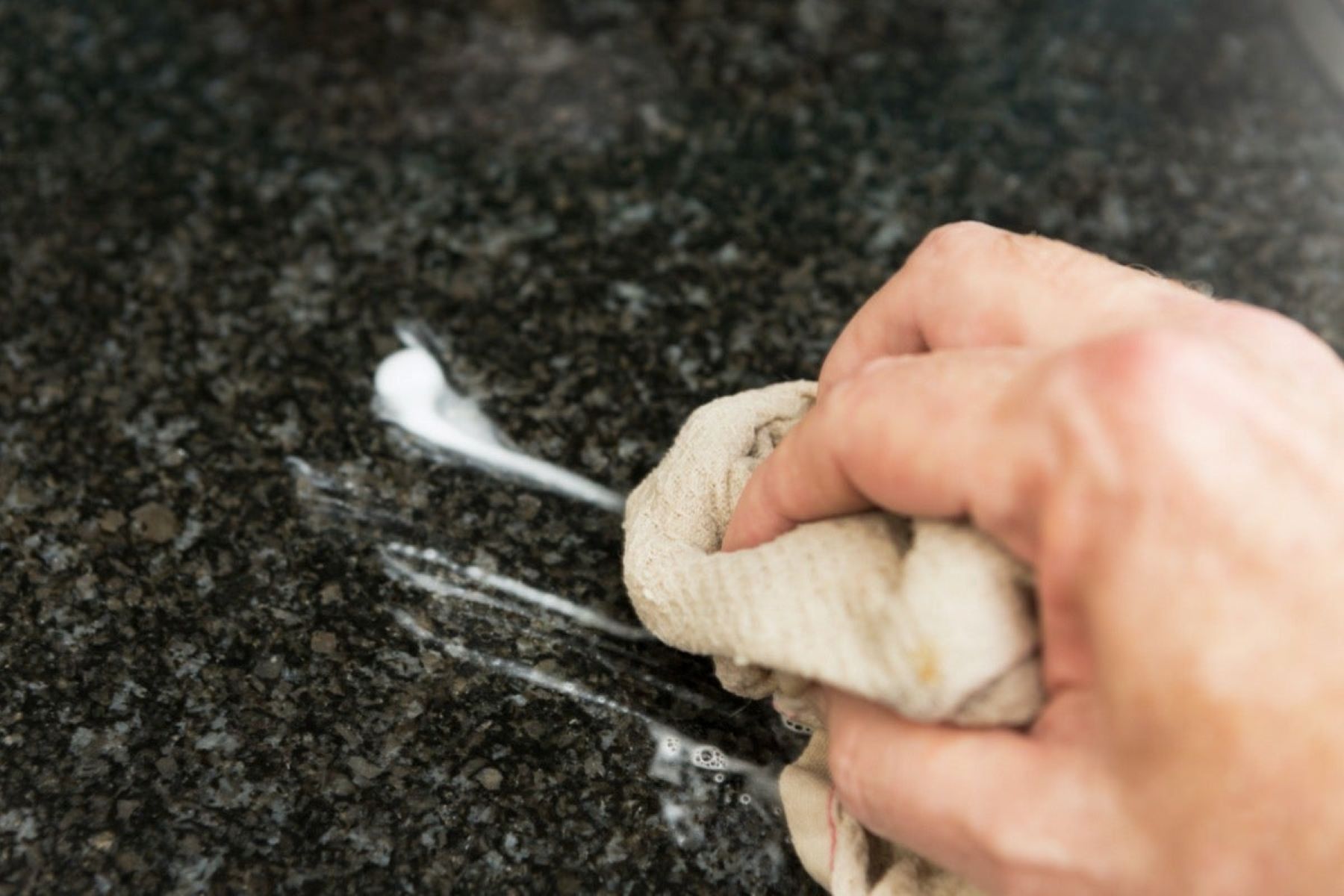

Articles
How Do You Disinfect Granite Countertops
Modified: January 20, 2024
Learn the proper way to disinfect granite countertops with our informative articles. Keep your kitchen clean and germ-free.
(Many of the links in this article redirect to a specific reviewed product. Your purchase of these products through affiliate links helps to generate commission for Storables.com, at no extra cost. Learn more)
Introduction
Granite countertops are a popular choice for kitchens and bathrooms due to their durability, beauty, and resistance to scratching and heat. However, with the recent global health concerns, it has become essential to not only clean but also disinfect high-touch surfaces in our homes, including granite countertops. While granite is generally resistant to bacteria and viruses, it’s still important to take proper cleaning and disinfecting measures to ensure a safe and hygienic environment for you and your family.
In this article, we will explore the best practices for cleaning and disinfecting granite countertops. We will also discuss the common household germs to be aware of and provide you with gentle cleaning methods, effective disinfecting techniques, as well as natural DIY and commercial disinfectant products that are safe to use on granite surfaces. Furthermore, we will share some precautions and tips to help you maintain the beauty and integrity of your granite countertops while keeping them germ-free.
Before we delve into the details of disinfecting granite countertops, let’s first gain a better understanding of what granite is and why it is a popular choice for kitchen and bathroom surfaces.
Key Takeaways:
- Proper cleaning and disinfecting of granite countertops are essential for maintaining a hygienic environment. Gentle cleaning methods and effective disinfecting techniques can help preserve the beauty and longevity of your countertops while ensuring a germ-free space for your family.
- By following precautions such as using cutting boards, avoiding harsh chemicals, and promptly wiping up spills, you can ensure that your granite countertops remain pristine and free from germs. Regular maintenance and periodic sealing will help protect against stains and spills, providing a worry-free and beautiful surface for years to come.
Read more: How Do You Cut Granite Countertops
Understanding Granite Countertops
Granite is a natural stone that is formed deep within the earth’s crust. It is composed mainly of quartz, feldspar, and mica, which give it its unique beauty and durability. Each slab of granite is one-of-a-kind, with its own distinct color, pattern, and veining, making it a highly sought-after material for countertops.
One of the main advantages of granite countertops is their exceptional durability. Granite is heat-resistant, meaning you can place hot pots and pans directly on the surface without causing any damage. It is also scratch-resistant, making it an ideal choice for busy kitchens where cutting and food preparation take place. Additionally, granite countertops are resistant to staining when sealed properly, making them a practical option for households.
In terms of hygiene, granite is considered to be relatively non-porous when properly sealed. While it is not completely impervious to liquids, it is less likely to absorb spills compared to other countertop materials. This characteristic makes granite a hygienic surface choice, as it is more resistant to harboring bacteria, mold, and mildew. However, it is important to note that granite is not inherently antimicrobial, and proper cleaning and disinfecting practices still need to be followed.
With its natural beauty, durability, and hygienic qualities, it’s no wonder that granite is a popular choice for countertops in kitchens and bathrooms. Now that we have a better understanding of granite and its properties, let’s explore the common household germs we need to be aware of and how to effectively clean and disinfect granite countertops.
Common Household Germs to Be Aware of
In our daily lives, our countertops come into contact with various germs that can pose a risk to our health. Understanding the common household germs and their potential sources is essential to maintain a clean and hygienic environment in our homes.
One of the most prevalent germs found in households is bacteria. Common strains of bacteria that can be found on countertops include Escherichia coli (E. coli), Salmonella, and Staphylococcus aureus (Staph). These bacteria can be introduced through raw or undercooked foods, contaminated surfaces, or cross-contamination from other items.
In addition to bacteria, viruses also pose a risk to our health. Some common viruses that can be found on countertops include the flu virus, norovirus, and the common cold virus. These viruses can spread through contact with contaminated surfaces or through respiratory droplets from an infected person.
Another type of germ to be aware of is mold and mildew. These fungi thrive in moist environments and can be found in areas with high humidity, such as kitchens and bathrooms. Mold and mildew can cause respiratory problems and allergic reactions if left unaddressed.
To effectively clean and disinfect granite countertops, it is important to target these common household germs. In the next section, we will discuss the basics of cleaning and disinfecting granite surfaces to maintain a safe and healthy space for you and your family.
Cleaning and Disinfecting Basics
Before diving into specific cleaning and disinfecting techniques for granite countertops, it’s essential to understand the basic principles behind maintaining a clean and sanitary surface.
Firstly, regular cleaning is key to preventing the accumulation of dirt, grime, and bacteria on your countertops. Wiping down your granite countertops with a soft, non-abrasive cloth or sponge and a mild dish soap solution is usually sufficient for day-to-day cleaning. Avoid using harsh or abrasive cleaners, as they can dull the surface of the granite and damage the sealant.
In addition to regular cleaning, it’s important to disinfect your granite countertops, especially during times when hygiene is of utmost concern. Disinfecting helps kill bacteria and viruses that may be present on the surface. However, it’s crucial to note that disinfecting should not replace regular cleaning, as it does not remove physical debris or dirt.
When it comes to disinfecting granite countertops, it’s essential to choose the right products and techniques to ensure the safety and integrity of the stone. Harsh chemicals, like bleach or ammonia-based cleaners, should be avoided, as they can damage the sealant and cause discoloration. Instead, opt for gentle cleaning agents specifically formulated for use on granite surfaces.
In the following sections, we will explore gentle cleaning methods, effective disinfecting techniques, as well as natural DIY and commercial disinfectant products that are safe to use on granite countertops. By implementing these methods, you can maintain the pristine condition of your granite countertops while ensuring a clean and germ-free environment for your household.
Gentle Cleaning Methods for Granite Countertops
When it comes to cleaning granite countertops, it’s important to use gentle methods and avoid harsh chemicals that can damage the surface or strip away the sealant. Here are some effective and safe cleaning methods for your granite countertops:
- Warm Water and Dish Soap: Start by wiping down the surface of your granite countertops with a soft cloth or sponge and warm water. Add a few drops of mild dish soap to the water for extra cleaning power. Gently scrub the surface in a circular motion to remove any dirt or grime. Rinse with clean water and dry with a soft cloth.
- Vinegar and Water Solution: Vinegar is a natural cleaning agent that can help remove stains and disinfect your granite countertops. Mix equal parts of water and white vinegar in a spray bottle. Spray the solution on the surface and let it sit for a few minutes to loosen any stubborn residue. Wipe down the countertops with a soft cloth or sponge and rinse with water. Dry thoroughly.
- Isopropyl Alcohol: Isopropyl alcohol is an effective disinfectant that can kill bacteria and viruses without damaging granite. Dilute the alcohol with water in a 50:50 ratio and pour the solution into a spray bottle. Spray the mixture onto the countertops and wipe clean with a soft cloth. Rinse with water and dry thoroughly.
- Baking Soda Paste: Baking soda is a gentle abrasive that can help remove stubborn stains from your granite countertops. Create a paste by mixing baking soda with water to form a thick consistency. Apply the paste to the stained area and gently scrub with a soft cloth or sponge. Rinse with water and dry completely.
It’s important to note that while these gentle cleaning methods are effective for day-to-day cleaning, they may not be sufficient for disinfecting. In the next section, we will explore effective disinfecting techniques specifically tailored for granite countertops to ensure a hygienic environment for your home.
Use a mixture of warm water and mild dish soap to clean granite countertops. Avoid using harsh chemicals or abrasive cleaners, as they can damage the surface. Always wipe dry to prevent water spots.
Read more: How Do You Paint Granite Countertops
Effective Disinfecting Techniques for Granite Countertops
Disinfecting your granite countertops is crucial for killing bacteria and viruses that may be present on the surface. However, it’s important to choose the right techniques and products to ensure the safety and integrity of your countertops. Here are some effective disinfecting techniques for granite countertops:
- Alcohol-Based Disinfectant Sprays: Look for alcohol-based disinfectant sprays that are specifically formulated for use on granite surfaces. These sprays typically contain isopropyl alcohol, which is an effective disinfectant. Spray the product onto the countertops and let it sit for a few minutes to allow for proper disinfection. Wipe the surface clean with a soft cloth or sponge, rinse with water, and dry thoroughly.
- Hydrogen Peroxide: Hydrogen peroxide is another effective disinfectant that can be used on granite surfaces. Dilute hydrogen peroxide with water in a 50:50 ratio and pour the solution into a spray bottle. Spray the mixture onto the countertops and let it sit for a few minutes before wiping it clean with a soft cloth or sponge. Rinse with water and dry thoroughly.
- Quaternary Ammonium Compounds: Quaternary ammonium compounds, also known as quats, are commonly used disinfectants. Look for quaternary ammonium-based disinfectant wipes or sprays that are safe to use on granite countertops. Follow the instructions provided by the manufacturer for proper disinfection. After disinfection, rinse the surface with water and dry thoroughly.
Regardless of the disinfecting technique you choose, it’s important to always follow the manufacturer’s instructions to ensure proper usage and safety. Additionally, avoid using bleach or bleach-based products on your granite countertops, as they can cause discoloration and damage to the stone.
Remember to also regularly clean your countertops using gentle methods, as disinfecting alone does not remove physical debris or dirt. By incorporating both effective cleaning and disinfecting techniques, you can ensure a clean and germ-free environment for your home while maintaining the beauty and durability of your granite countertops.
Natural DIY Disinfectants for Granite Countertops
If you prefer to use natural ingredients and avoid harsh chemicals, there are several DIY disinfectants that are safe and effective for cleaning granite countertops. Here are a few natural options you can try:
- Vinegar and Water Solution: Vinegar is a versatile and natural cleaning agent that can also help disinfect granite surfaces. Mix equal parts of water and white vinegar in a spray bottle. Spray the solution onto the countertops and let it sit for a few minutes to disinfect. Wipe the surface clean with a soft cloth or sponge, rinse with water, and dry thoroughly.
- Lemon Juice: Lemon juice is acidic and has antimicrobial properties, making it a great natural disinfectant for granite countertops. Squeeze fresh lemon juice and dilute it with water in a spray bottle. Spray the mixture onto the countertops, allow it to sit for a few minutes, and then wipe clean with a soft cloth or sponge. Rinse with water and dry thoroughly.
- Essential Oils: Certain essential oils, such as tea tree oil and lavender oil, have natural antimicrobial properties. Mix a few drops of your chosen essential oil with water in a spray bottle. Spray the mixture onto the countertops, let it sit for a few minutes, and then wipe clean with a soft cloth or sponge. Rinse with water and dry thoroughly.
- Hydrogen Peroxide and Water Solution: Hydrogen peroxide is a natural disinfectant that can be used to clean and disinfect granite countertops. Mix equal parts of hydrogen peroxide and water in a spray bottle. Spray the solution onto the countertops, allow it to sit for a few minutes, and then wipe clean with a soft cloth or sponge. Rinse with water and dry thoroughly.
It’s important to note that while these natural DIY disinfectants are effective in killing common household germs, they may not be as potent as commercial disinfectants. If you have specific concerns about pathogens or require a stronger disinfectant, it’s recommended to use commercially available disinfectant products that are safe for use on granite countertops.
By using natural DIY disinfectants, you can still achieve a clean and germ-free surface while avoiding harsh chemicals that can damage the sealant or cause discoloration on your granite countertops. As always, perform a spot test in an inconspicuous area before using any homemade cleansers on your countertops.
Commercial Disinfectant Products for Granite Countertops
If you prefer to use commercial disinfectant products for cleaning and disinfecting your granite countertops, there are several options available that are specifically designed to be safe for use on granite surfaces. Here are a few examples of commercial disinfectant products you can consider:
- Specific Granite Cleaners: Look for granite-specific cleaners that are formulated to clean and disinfect granite countertops without causing any damage or discoloration. These cleaners often contain ingredients that are safe for use on natural stone surfaces. Follow the instructions provided by the manufacturer for proper usage and disinfection.
- Disinfectant Wipes: Many disinfectant wipes available in the market are suitable for use on granite countertops. Look for wipes that are labeled as safe for use on granite surfaces. These wipes usually contain disinfecting agents that can kill bacteria and viruses. Wipe the countertops thoroughly with the disinfectant wipes according to the instructions provided.
- Microfiber Cleaning Cloths: Microfiber cleaning cloths are not disinfectants themselves, but they can be used in conjunction with a suitable cleaning spray or disinfectant. Microfiber cloths are effective for trapping and removing dirt and germs from surfaces. Choose a microfiber cloth specifically designed for use on granite countertops and follow the instructions provided with your chosen cleaning or disinfecting product.
When selecting a commercial disinfectant product, ensure that it is explicitly labeled as safe for use on granite to prevent any potential damage to the surface. It’s also a good idea to do a spot test in an inconspicuous area before using the product on the entire countertop.
Always follow the manufacturer’s instructions for proper usage and safety precautions when using commercial disinfectant products. Regularly cleaning and disinfecting your granite countertops with a commercial product specifically designed for granite surfaces can help ensure a clean and germ-free environment while preserving the beauty and longevity of your countertops.
Precautions and Tips for Maintaining Granite Countertops
Proper maintenance is key to preserving the beauty and longevity of your granite countertops. Here are some precautions and tips to help you maintain and care for your granite surfaces:
- Use Cutting Boards and Trivets: To prevent scratches and damage to your granite countertops, always use cutting boards when preparing food and trivets or hot pads when placing hot pots and pans on the surface. Avoid cutting or placing hot items directly on the granite to prevent potential damage.
- Avoid Harsh Chemicals: Harsh chemicals such as bleach, ammonia, and vinegar (undiluted) can damage the sealant and cause discoloration on your granite countertops. Use only gentle, pH-neutral cleaners specifically designed for use on granite surfaces to clean and disinfect your countertops.
- Wipe Up Spills Promptly: Accidental spills of acidic substances, such as lemon juice, vinegar, or citrus-based cleaners, should be wiped up immediately to prevent etching or staining. Use a soft cloth or sponge to absorb the spill and gently clean the affected area with a granite-safe cleaner.
- Seal Your Countertops Regularly: Granite countertops should be sealed periodically to maintain their resistance to stains and spills. Check with the manufacturer or consult a professional to determine the appropriate frequency of sealing for your specific type of granite. Follow the instructions provided with the sealant and ensure that the surface is thoroughly cleaned and dried before applying.
- Avoid Abrasive Scrubbing: While granite is a durable material, abrasive scrub brushes or scrub pads can cause scratches on the surface. Stick to soft cloths or sponges for regular cleaning and avoid using abrasive materials that can compromise the sealant.
- Prevent Moisture and Mold: Make sure that your granite countertops are properly sealed and avoid leaving standing water or dampness on the surface for extended periods. This helps prevent the growth of mold and mildew, which can be harmful to both the granite and your health.
- Regularly Dust and Wipe Down: Dust and debris can accumulate on your granite countertops, so it’s important to regularly dust the surface with a soft cloth or microfiber cloth. Additionally, wipe down your countertops daily or as needed with a mild soap and water solution to remove any dirt or grime.
- Follow Manufacturer’s Instructions: Different types of granite may have specific care instructions provided by the manufacturer. Therefore, it’s important to refer to the manufacturer’s guidelines for proper maintenance, sealing, and cleaning techniques for your specific granite countertops.
By following these precautions and tips, you can ensure that your granite countertops remain in excellent condition, maintain their natural beauty, and provide a hygienic surface for your home.
Read more: How Do You Clean Granite Kitchen Countertops
Conclusion
Maintaining clean and germ-free granite countertops is essential for creating a hygienic and safe environment in your kitchen or bathroom. By understanding the unique properties of granite and implementing proper cleaning and disinfecting techniques, you can preserve the beauty and longevity of your countertops while ensuring a healthy space for you and your family.
While granite is naturally resistant to bacteria and viruses, it’s important to clean and disinfect high-touch surfaces regularly, especially during times when hygiene is a top priority. Gentle cleaning methods using warm water and mild dish soap, vinegar and water solutions, or natural DIY ingredients like lemon juice and essential oils can effectively remove dirt and grime without damaging the sealant.
For disinfecting granite countertops, you can choose from alcohol-based disinfectant sprays, hydrogen peroxide solutions, or quaternary ammonium-based products that are specifically formulated for use on granite surfaces. Commercial disinfectant wipes or microfiber cleaning cloths can also be used in conjunction with a suitable cleaning or disinfecting product.
To maintain the longevity of your granite countertops, take precautions such as using cutting boards and trivets, avoiding harsh chemicals, and promptly wiping up spills. Regular sealing of your countertops and periodic maintenance will help protect against stains and spills, while preventing moisture and mold growth.
Remember to refer to the manufacturer’s instructions for specific care guidelines for your granite countertops. By following these precautions and tips, you can ensure that your granite surfaces stay pristine, germ-free, and beautiful for years to come.
In conclusion, with proper care and regular cleaning and disinfecting, your granite countertops will continue to enhance the aesthetic appeal of your space while providing a healthy and worry-free environment.
Frequently Asked Questions about How Do You Disinfect Granite Countertops
Was this page helpful?
At Storables.com, we guarantee accurate and reliable information. Our content, validated by Expert Board Contributors, is crafted following stringent Editorial Policies. We're committed to providing you with well-researched, expert-backed insights for all your informational needs.
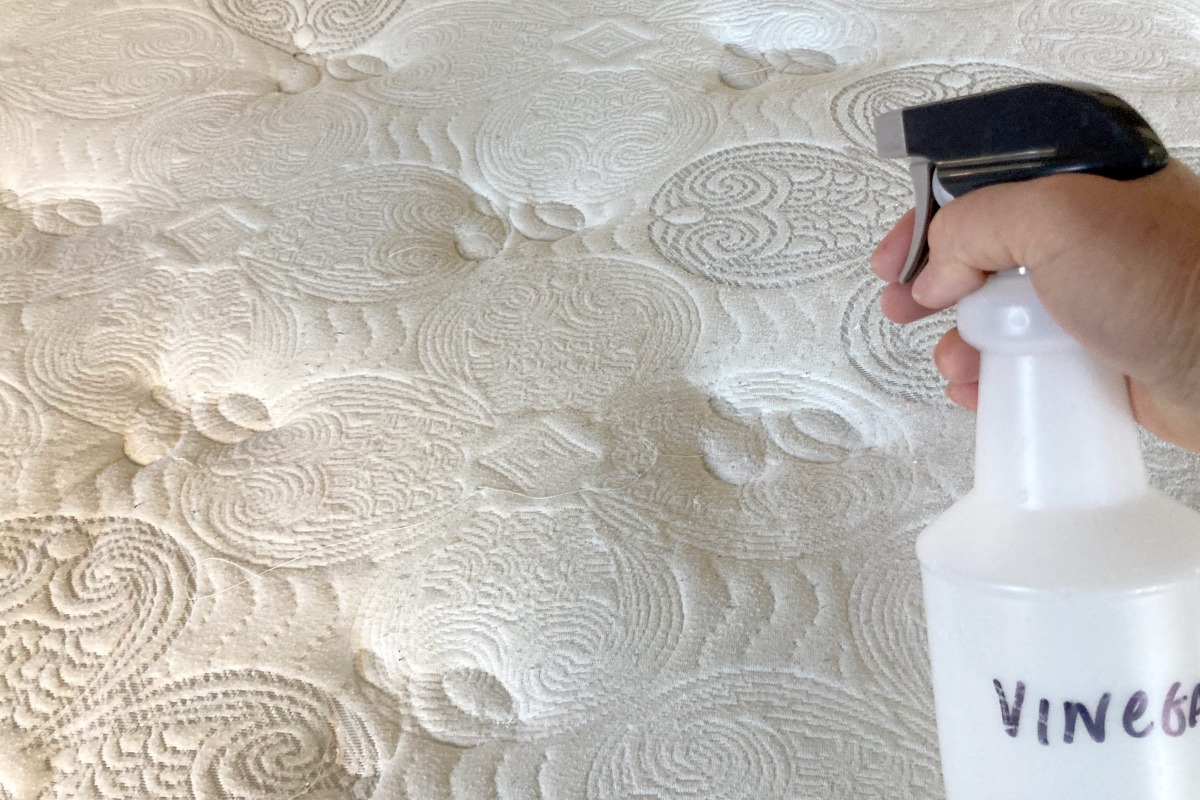
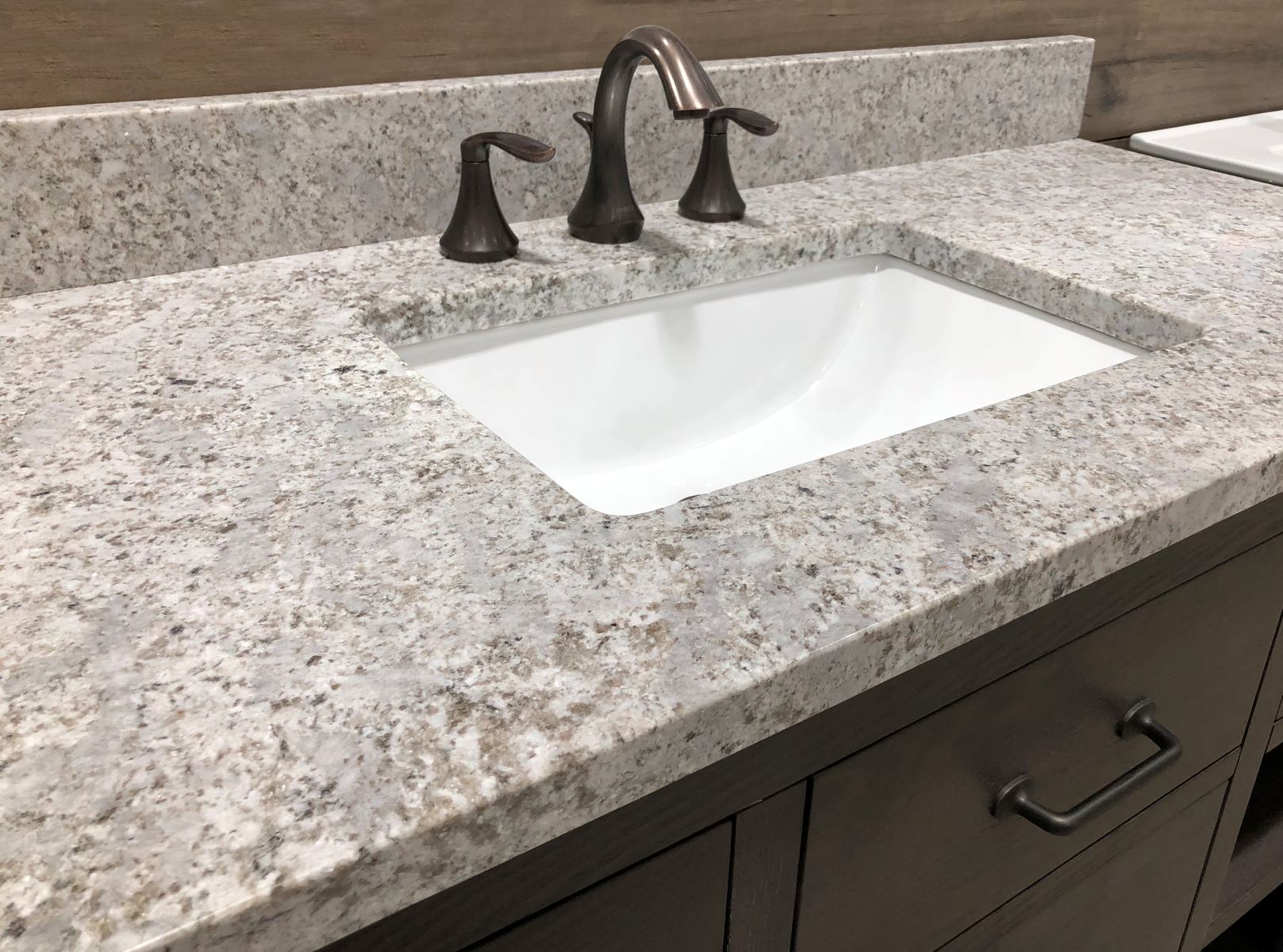
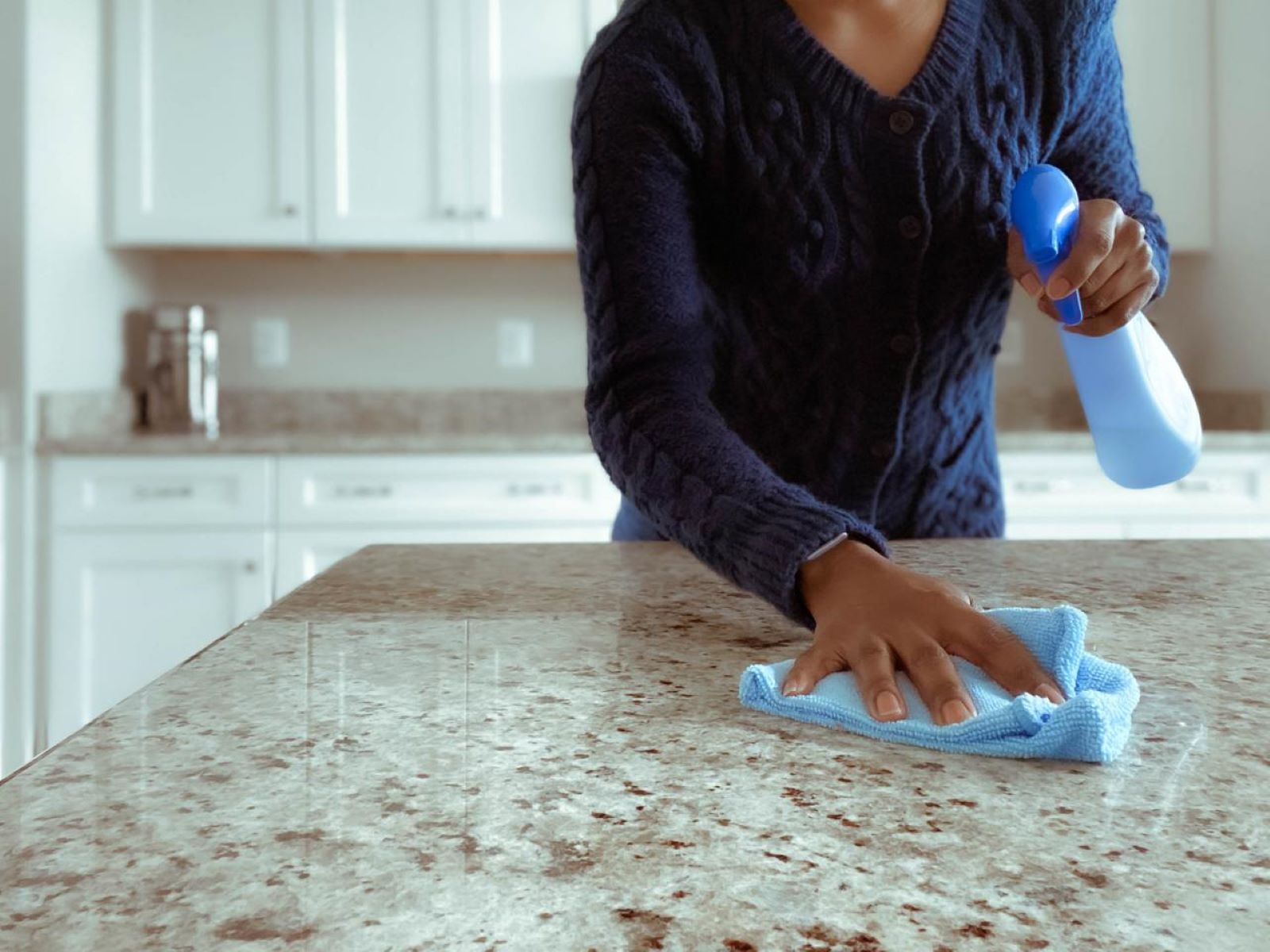
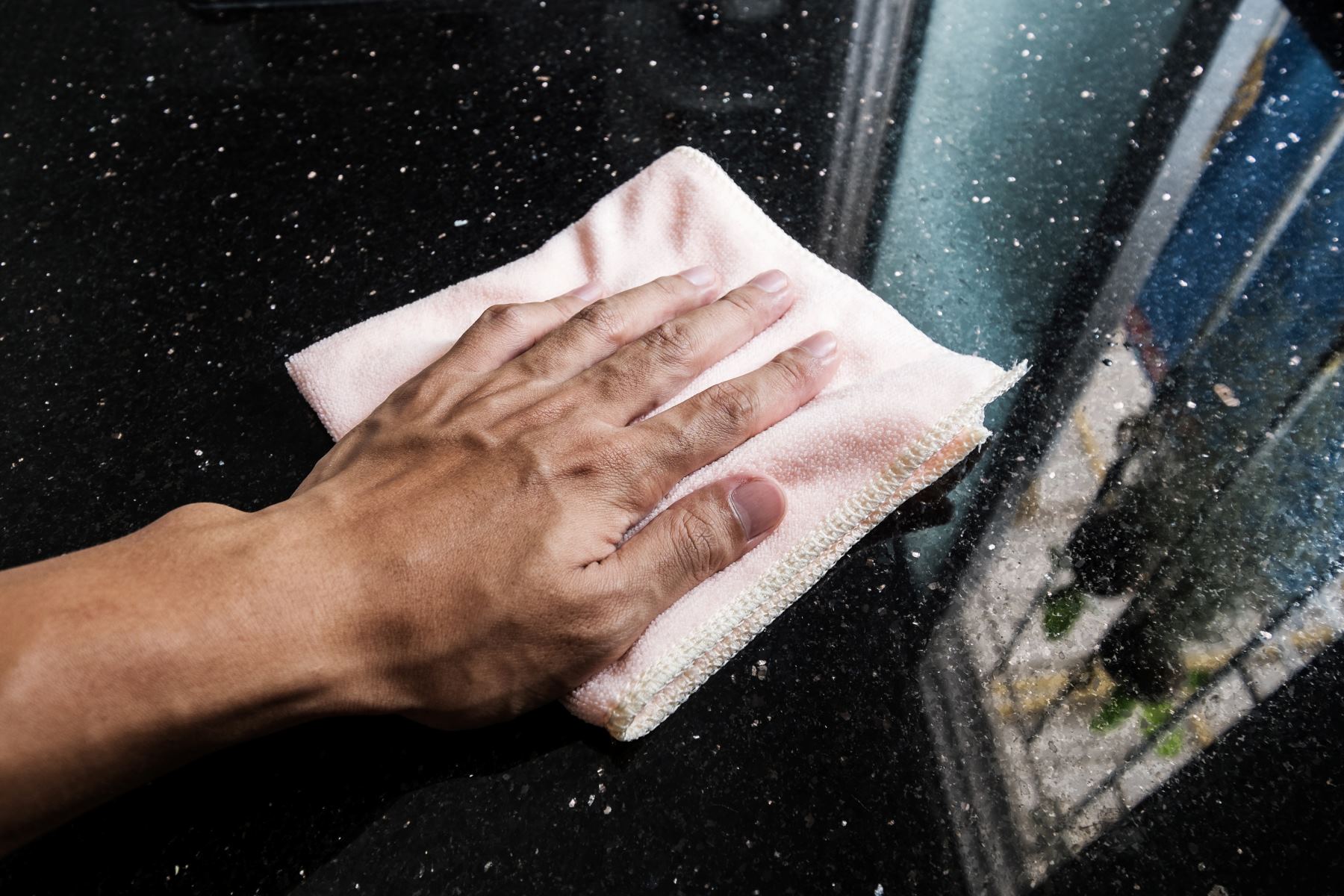


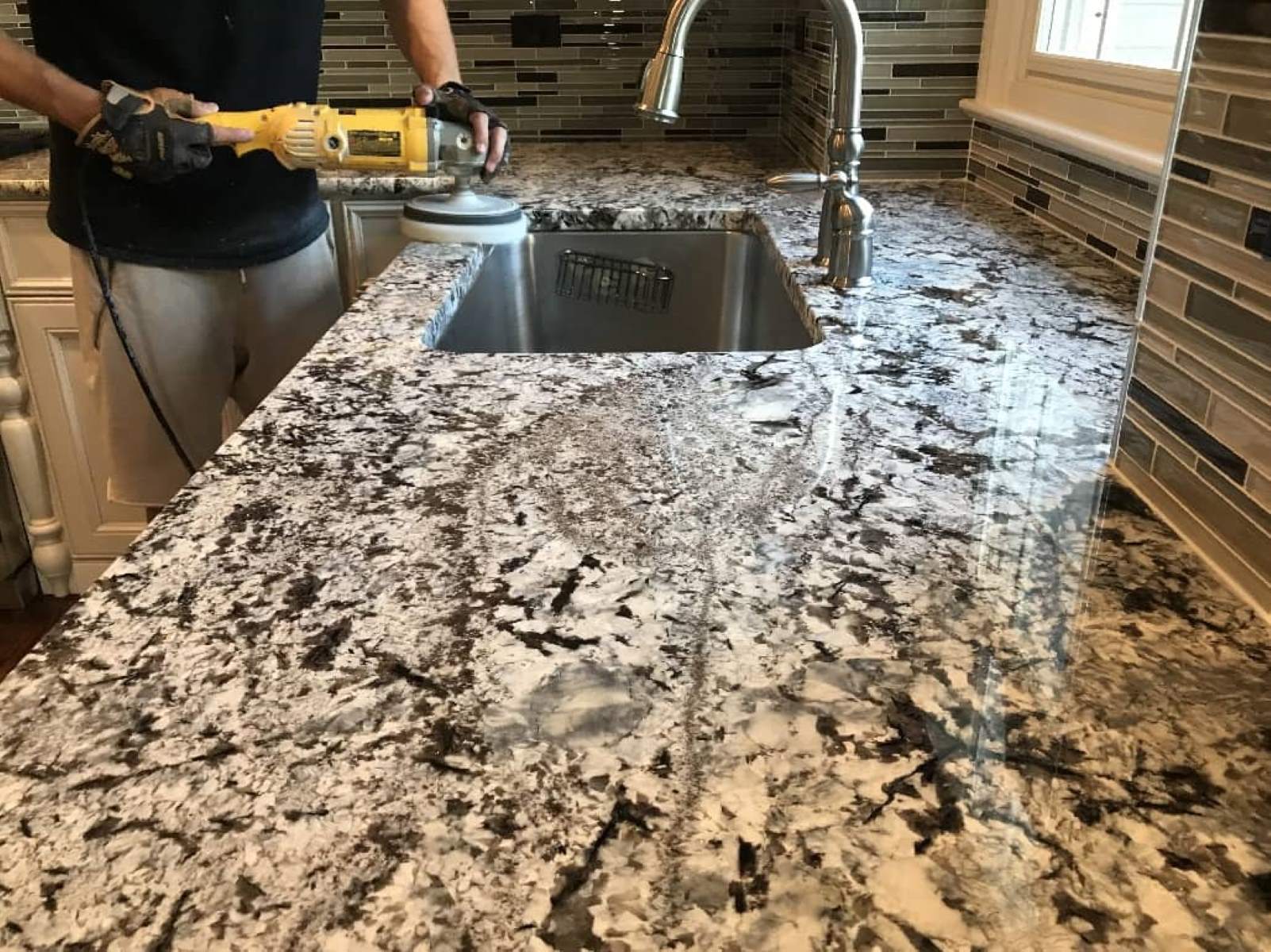
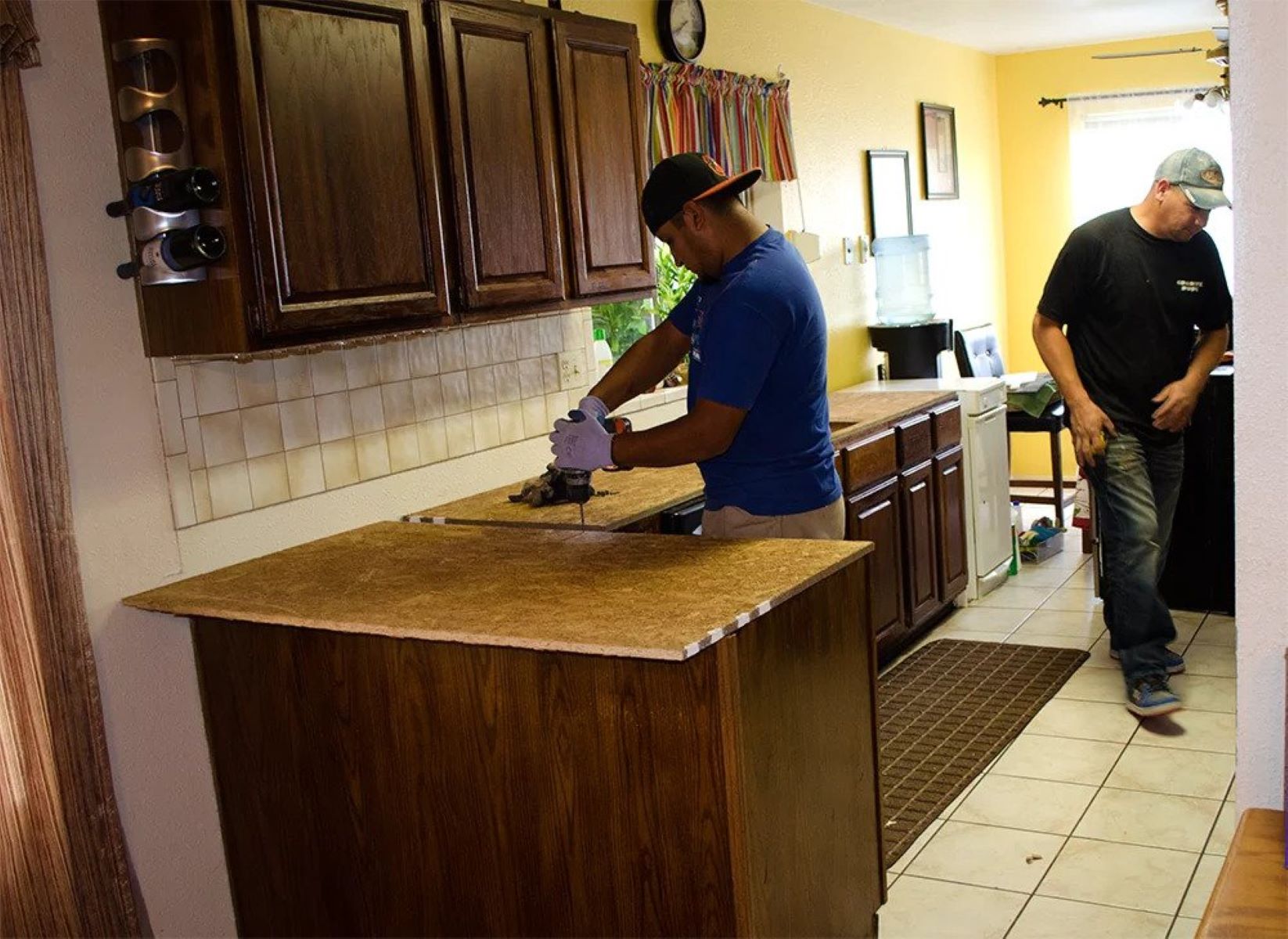

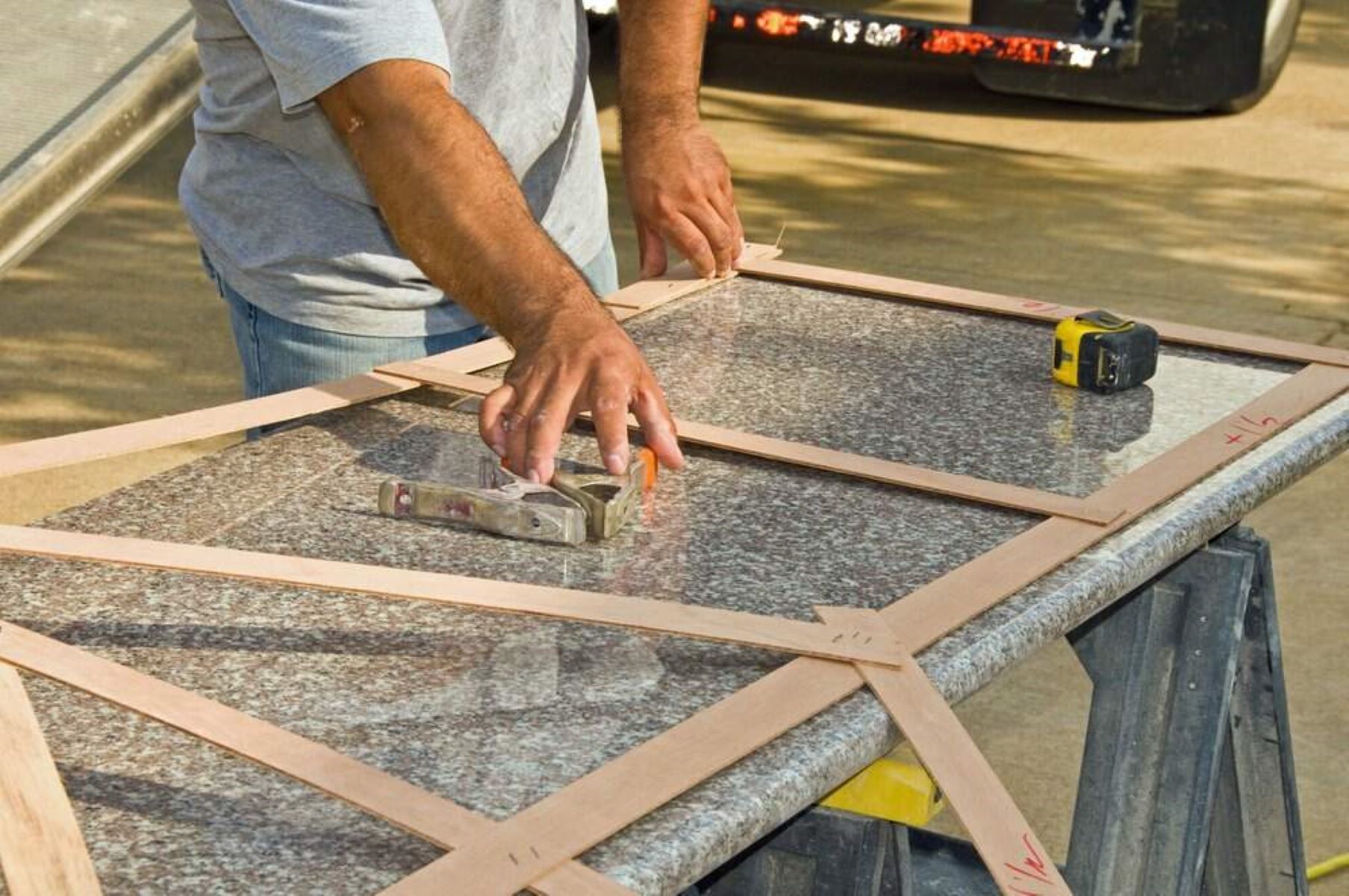
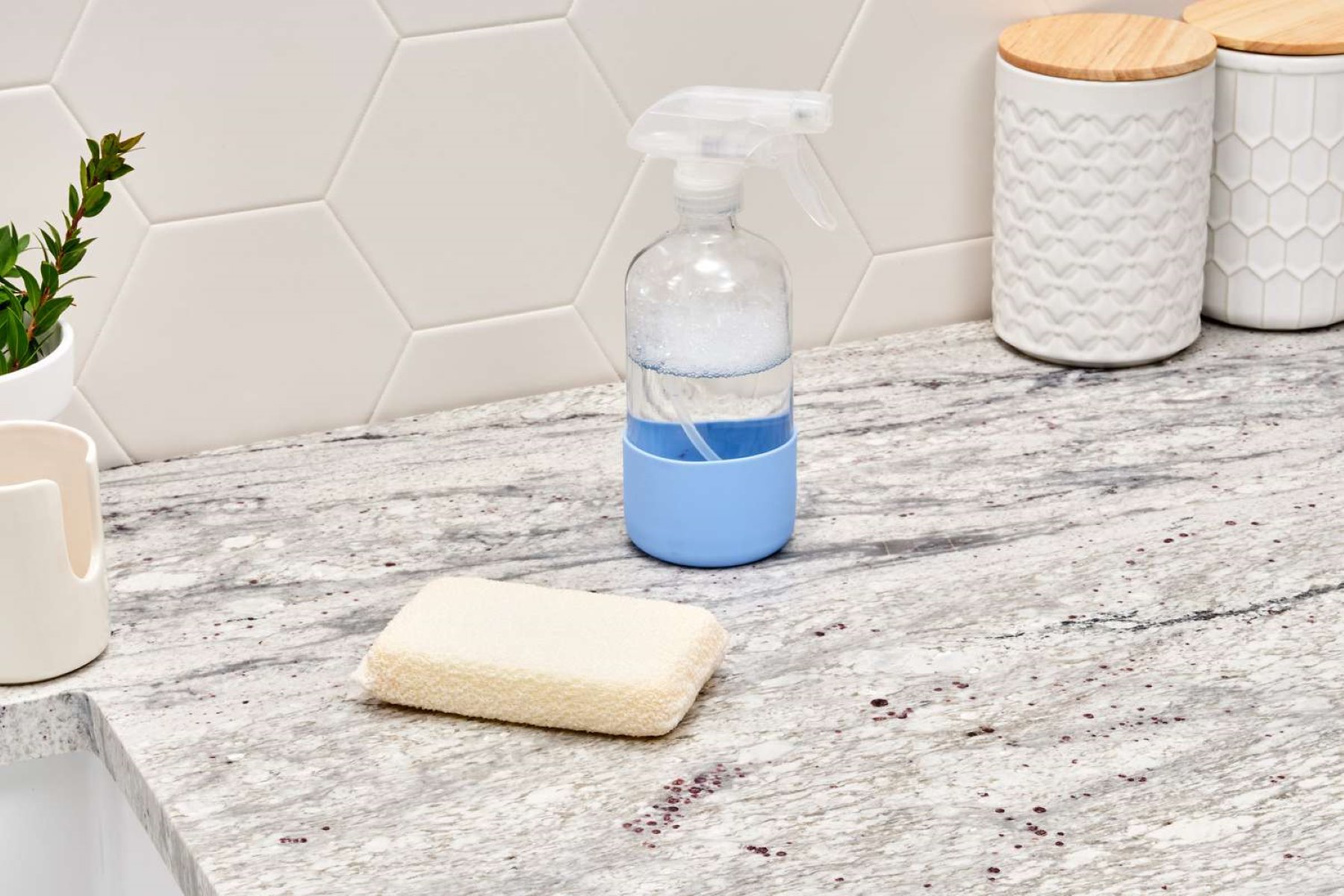

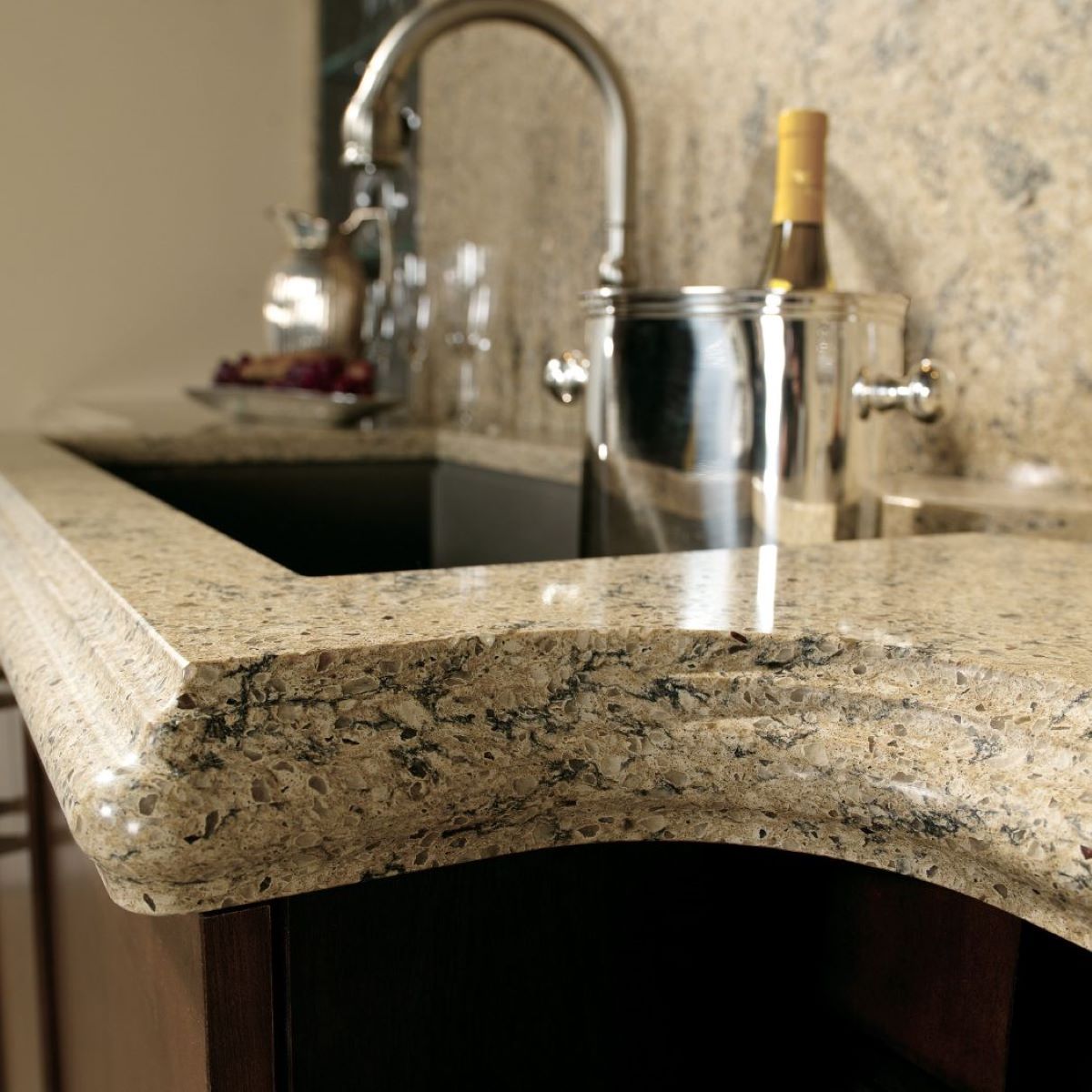

0 thoughts on “How Do You Disinfect Granite Countertops”